#Philip Dudley
Explore tagged Tumblr posts
Text
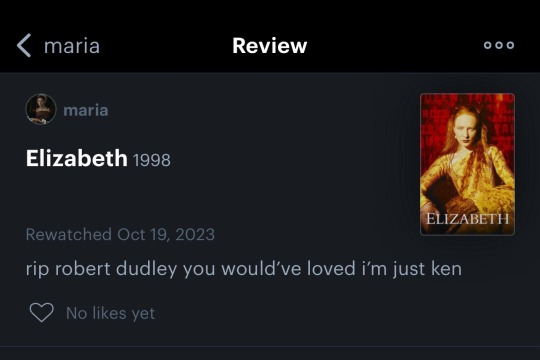
mojo dojo kenilworth casa house
#upon rewatching i KNEW that one scene where he’s reciting that whole philip sidney poem in the boat to her reminded me of smth#when i watched barbie months ago lmfaooo#shitpost#tudor memes#early modern memes#elizabeth i#robert dudley#tudor shitposting#elizabeth 1998#movies#maria rambles
52 notes
·
View notes
Text











Fans are gonna like this. It’ll be fun! There’s exciting stuff coming.
INSIDE BILLIONS SEASON 7
#billions#alright who do i want to bother to tag. let's see#dudley mafee#dollar bill stearn#mike prince#wendy rhoades#taylor mason#mike wags#asia kate dillon#eva victor#kelly aucoin#philip charyn#winston billions#sometimes i make things
9 notes
·
View notes
Text
ON THIS DAY - 27 October 1561
On This Day (27 Oct) 1561, Lady Mary Sidney, later Mary Herbert, Countess of Pembroke, was born at Tickenhall Manor, Bewdley; the daughter of Sir Henry Sidney and his wife Mary Dudley.

At the time of her birth, father Henry had been appointed as Lord President of the Council in Wales, whilst mother Mary was a member of Elizabeth I's court, being a Gentlewoman of the Privy Council, and subsequent close confidant of the queen.

Mary was the younger sister of Sir Philip Sidney, the Elizabethan soldier and poet, who famously composed 'Astrophel and Stella', said to be inspired by Lady Penelope Devereux, the stepdaughter of their uncle, Robert Dudley, Earl of Leicester. Along with her brother, she received a classical humanist education, including learning Latin, Greek, French and Italian, prior to attending court; their mother having contracted smallpox in 1562, leaving her permanently scarred and disfigured, subsequently restricting her own attendance at court.
By 1577, Mary had married Henry Herbert, 2nd Earl of Pembroke, in a union arranged by her uncle Robert Dudley; this marriage, the third for the older Earl, produced 4 children, including sons William and Philip. William Shakespeare's 'First Folio, published in 1623, was dedicated to these "incomparable pair of brethren".

Mary herself was one of the most prolific female writers, translators and literary patrons in late 16th and early 17th England. She provided a base at her home Wilton House, near Salisbury, for the gathering of influential writers and poets of the day, including Edmund Spenser (author of 'The Faerie Queen' c.1590) and Samuel Daniel, later tutor to Lady Anne Clifford. Along with her husband, Mary also provided patronage to 'Pembroke's Men', one of the first companies to perform Shakespeare's and Christopher Marlow's work in the 1590s.

Mary died on 21 Sep 1621 in London of smallpox - the same illness from which her mother had suffered greatly from in 1562, whilst caring for the sick Elizabeth. Following a grand funeral held at St Paul's Cathedral, Mary's coffin was taken to Salisbury Cathedral, where she was interred in the vaults alongside her husband Henry Herbert (d.1601), and later joined by her two sons William (d.1630) and Philip (d.1649).
#tudor england#tudor history#tudor people#history#tudor women#tudor#tudors#Mary sidney#Mary herbert#Henry sidney#Philip sidney#Mary dudley#Robert dudley#Henry herbert#Penelope devereux#Elizabeth i#smallpox
0 notes
Text
Of family meetings and other lies
"Of family meetings and other lies", a review of Mike van Graan's 'My Fellow South Africans' at Theatre on the Square in Sandton until 2 September.
WITH an ‘eff you’ face, Kim Blanche Adonis in Mike van Graan’s My Fellow South Africans at Theatre on the Square until 2 September. Photograph by Philip Kuhn. THERE IS NOTHING quite like the anger of an articulate playwright to get the currents of electricity flowing through the veins of an audience. My Fellow South Africans by Mike van Graan charges up the levels of political satire with strong…
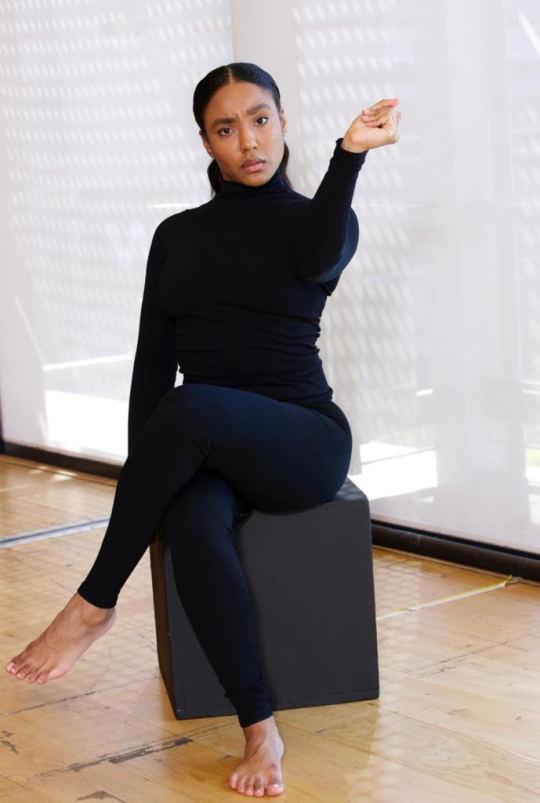
View On WordPress
#Ben Voss#Blaze Zimba#Computicket#Conrad Koch#Daniel Mpilo Richards#Daphne Kuhn#Dudley Moore#John van de Ruit#Jonathan Shapiro#Kim Blanche Adonis#Marc Lottering#Mike van Graan#My Fellow South Africans#Nic van Graan#Philip Kuhn#Pieter-Dirk Uys#President Cyril Ramaphosa#Rob van Vuuren#Sandton#Spike Jones and the City Slickers#Theatre on the Square#Zapiro
0 notes
Text
Anniversary Tournament
Last year for Doctor Who's anniversary I ran a tournament between Doctor Who stories, and I wanted to so something different again this year. A tournament between real people important to the history of Doctor Who, actors, writers, producers, directors, composers, production designers. Technically it'll be a tournament for the most infuential person to Doctor Who and its development over the years, but really I want it to be a celebration of all of these people, and not just the winner.
To that end, the nomination form, you can also submit nominations normally, ie sending me an ask or replying to this post, however I won't be accepting propaganda through those methods.
I'm thinking I'll close nominations on the 18th of November, that might change but probably not by much
Current Nominations:
if green then at least one person has submitted propaganda for them
Actors
Arthur Darvil
Billie Piper
Carole Ann Ford
Christopher Eccleston
Colin Baker
David Graham and Peter Hawkins
David Tennant
Frazer Hines
Freema Agyeman
India Fisher
Jacqueline Hill
Jodie Whittaker
John Simm
Jon Pertwee
Lisa Bowerman
Liz Sladen
Matt Smith
Ncuti Gatwa
Nicholas Courtney
Pat Gorman
Patrick Troughton
Paul McGann
Peter Capaldi
Peter Davison
Rodger Delgado
Sean Carlsen
Sophie Aldred
Stuart Fell
Sylvester McCoy
Tom Baker
William Hartnell
William Russell
Composer
Delia Derbyshire
Dudley Simpson
Murray Gold
Paddy Kingsland
Peter Howell
Rob Harvey
Ron Grainer
Segun Akinola
The BBC Radiophonic Workshop
Designers
June Hudson
Peter Brachacki
Raymond Cusic
Directors
Christopher Barry
Graeme Harper
Paddy Russell
Rachel Talalay
Richard Martin
Waris Hussein
Fandom
Marnal Gate
TARDIS wiki creator
The Audience
Craig Ferguson
Producers
Barry Letts
Graham Williams
John Nathan Turner
Philip Hinchcliffe
Verity Lambert
Julie Gardner
Writers (including script editors and showrunners)
Alan Moore
Anthony Coburn
Chris Chibnall
David Whittaker
Donald Wilson
Douglas Adams
Eric Saward
Gerry Davis
Grant Morrison
John Lucarotti
Johnathan Blum
Justine Richards
Kate Orman
Kit Pedler
Lance Parkin
Lawrence Miles
Marc Platt
Paul Cornell
Robert Holmes
Robert Shearman
Rona Munro
Russell T Davies
Steven Moffatt
Terrance Dicks
Terry Nation
Other/impossible to categorise
all the thousands of people who've worked behind the scenes
Michael Grade (BBC higherup who hated doctor who so so much)
Peter Cregeen (actually cancelled Doctor Who)
Sydney Newman
Nicholas Briggs
Gary Russell
John F Kennedy
Sue from Catering
The real historical figures who've appeared in the show
Shakespeare
105 notes
·
View notes
Text

Tobor the Great is a 1954 independently made American black-and-white science fiction film, produced by Richard Goldstone, directed by Lee Sholem, and starring Charles Drake, Karin Booth, and Billy Chapin. The film was written by Carl Dudley and Philip MacDonald and was distributed by Republic Pictures.
21 notes
·
View notes
Text

ab. 1595-1605 English School - Portrait of an Explorer, probably Sir Robert Dudley
(Philip Mould & Company)
136 notes
·
View notes
Photo

Wyatt Rebellion
The Wyatt Rebellion of January-February 1554 CE saw Sir Thomas Wyatt the Younger lead a group of several thousand Kent rebels in a march on London with the primary aim of preventing Mary I of England (r. 1553-1558 CE) from marrying Spain's Prince Philip (l. 1527-1598 CE). There was, too, the secondary aim - never openly declared - of replacing Mary with her younger half-sister Elizabeth Tudor (b. Sep. 1533 CE). The rebels were also motivated by the fall in living standards in England caused by inflation, food shortages, the decline in trade (especially of cloth), and several waves of deadly epidemics. The rebellion failed thanks to Mary's armed response and a general lack of support from the people of London. The leaders, including Wyatt, were executed and so was Mary's cousin Lady Jane Grey (b. Oct. 1537 CE) just in case she became a figurehead for future rebellions. For the same reason, Elizabeth was detained in the Tower of London. Mary then went on to vehemently persecute her enemies whom she identified as Protestant heretics, thereby earning her lasting nickname 'Bloody Mary'.
Mary I's Succession
Mary I of England had succeeded her brother Edward VI of England (r. 1547-1553 CE), although she had almost been the victim of a coup d'etat in July 1553 CE when John Dudley, the Earl of Northumberland (l. 1504-1553 CE) tried to install Mary's cousin Lady Jane Grey (1537-1554 CE) as queen. Lady Jane was Protestant and Mary Catholic so that each represented the interests of the two sides which had split England ever since Mary's father Henry VIII of England (r. 1509-1547 CE) had separated the Church in England from Rome and the Pope. As it turned out, the vast majority of nobles and the commoners preferred to honour Henry VIII's wish that Mary succeed Edward if he were without children. Legitimacy and direct ties of royal blood triumphed over any religious considerations. However, Mary convinced herself that her initial popularity was because she proposed to return her kingdom to Catholicism by reversing the English Reformation that had been ongoing under her two predecessors, starting with the First Act of Repeal of 1553 CE; she had, thought Mary, been chosen by both the people and God. However, the air of optimism that had surrounded Mary's succession was soon to become fouled by the treacherous stench of rebellion.
Continue reading...
21 notes
·
View notes
Text
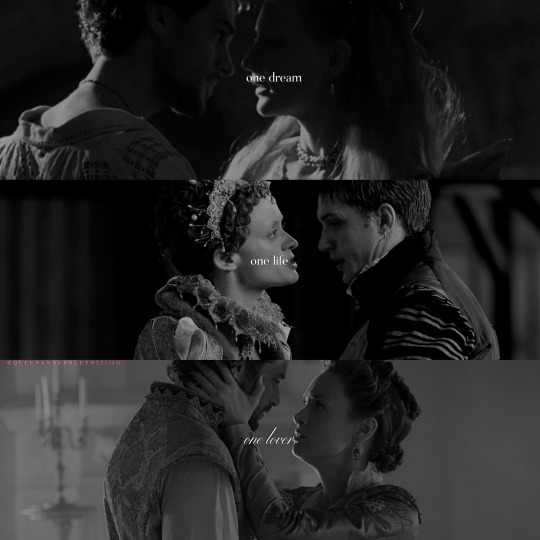
"Beyond all this, and quite aside from the possibility that early in life the two had formed a bond of which we have been left no record, Elizabeth had reason to regard Dudley as a kindred spirit. Although the Duke of Northumberland died professing himself a Catholic, all his offspring embraced evangelical Protestantism. The male Dudleys who had not been executed were still being held in the Tower when Wyatt’s Rebellion led to Elizabeth’s confinement there. The experience, which for Elizabeth and Robert alike included the very real possibility of execution, gave them a profoundly memorable experience in common. Both were ultimately saved by the intercession of Philip after his arrival from Spain, Elizabeth as a safeguard against Mary Stuart, Dudley and his brothers because of their stature among England’s warrior elite and Philip’s wish for influential friends. Both remained deep in the political wilderness, however, as long as Queen Mary remained alive. The properties bestowed on her in her father’s will had made Elizabeth rich, and during Mary’s reign she was an inherently important personage as heir presumptive, but her life was quiet except for those moments of near-terror occasioned by official suspicion that she was involved in plots against the queen. Dudley, his conviction for treason set aside thanks to Philip’s intervention, settled into the peaceful existence of a country gentleman." - The Tudors: The Complete Story of England’s Most Notorious Dynasty by G.J. Meyer
#perioddramaedit#history#robert dudley#the dudleys#elizabeth#elizabeth i#elizabethiedit#elizabeth 1998#elizabeth the golden age#cate blanchett#the virgin queen#reign#rachel skarsten#elizabeth x robert#bess and robin#anne marie duff#tom Hardy#reignedit#joseph fiennes#perioddramasource#tudor era#16th century#elizabethan era#lana del rey#lyricsedit#venice bitch#the tudors#lyrics#Charlie Carrick#elizabeth tudor
103 notes
·
View notes
Text
Ages of English Queens at First Marriage
I have only included women whose birth dates and dates of marriage are known within at least 1-2 years, therefore, this is not a comprehensive list. For this reason, women such as Philippa of Hainault and Anne Boleyn have been omitted.
This list is composed of Queens of England when it was a sovereign state, prior to the Acts of Union in 1707. Using the youngest possible age for each woman, the average age at first marriage was 17.
Eadgifu (Edgiva/Ediva) of Kent, third and final wife of Edward the Elder: age 17 when she married in 919 CE
Ælfthryth (Alfrida/Elfrida), second wife of Edgar the Peaceful: age 19/20 when she married in 964/965 CE
Emma of Normandy, second wife of Æthelred the Unready: age 18 when she married in 1002 CE
Ælfgifu of Northampton, first wife of Cnut the Great: age 23/24 when she married in 1013/1014 CE
Edith of Wessex, wife of Edward the Confessor: age 20 when she married in 1045 CE
Matilda of Flanders, wife of William the Conqueror: age 20/21 when she married in 1031/1032 CE
Matilda of Scotland, first wife of Henry I: age 20 when she married in 1100 CE
Adeliza of Louvain, second wife of Henry I: age 18 when she married in 1121 CE
Matilda of Boulogne, wife of Stephen: age 20 when she married in 1125 CE
Empress Matilda, wife of Henry V, HRE, and later Geoffrey V of Anjou: age 12 when she married Henry in 1114 CE
Eleanor of Aquitaine, first wife of Louis VII of France and later Henry II of England: age 15 when she married Louis in 1137 CE
Isabella of Gloucester, first wife of John Lackland: age 15/16 when she married John in 1189 CE
Isabella of Angoulême, second wife of John Lackland: between the ages of 12-14 when she married John in 1200 CE
Eleanor of Provence, wife of Henry III: age 13 when she married Henry in 1236 CE
Eleanor of Castile, first wife of Edward I: age 13 when she married Edward in 1254 CE
Margaret of France, second wife of Edward I: age 20 when she married Edward in 1299 CE
Isabella of France, wife of Edward II: age 13 when she married Edward in 1308 CE
Anne of Bohemia, first wife of Richard II: age 16 when she married Richard in 1382 CE
Isabella of Valois, second wife of Richard II: age 6 when she married Richard in 1396 CE
Joanna of Navarre, wife of John IV of Brittany, second wife of Henry IV: age 18 when she married John in 1386 CE
Catherine of Valois, wife of Henry V: age 19 when she married Henry in 1420 CE
Margaret of Anjou, wife of Henry VI: age 15 when she married Henry in 1445 CE
Elizabeth Woodville, wife of Sir John Grey and later Edward IV: age 15 when she married John in 1452 CE
Anne Neville, wife of Edward of Lancaster and later Richard III: age 14 when she married Edward in 1470 CE
Elizabeth of York, wife of Henry VII: age 20 when she married Henry in 1486 CE
Catherine of Aragon, wife of Arthur Tudor and later Henry VIII: age 15 when she married Arthur in 1501 CE
Jane Seymour, third wife of Henry VIII: age 24 when she married Henry in 1536 CE
Anne of Cleves, fourth wife of Henry VIII: age 25 when she married Henry in 1540 CE
Catherine Howard, fifth wife of Henry VIII: age 17 when she married Henry in 1540 CE
Jane Grey, wife of Guildford Dudley: age 16/17 when she married Guildford in 1553 CE
Mary I, wife of Philip II of Spain: age 38 when she married Philip in 1554 CE
Anne of Denmark, wife of James VI & I: age 15 when she married James in 1589 CE
Henrietta Maria of France, wife of Charles I: age 16 when she married Charles in 1625 CE
Catherine of Braganza, wife of Charles II: age 24 when she married Charles in 1662 CE
Anne Hyde, first wife of James II & VII: age 23 when she married James in 1660 CE
Mary of Modena, second wife of James II & VII: age 15 when she married James in 1673 CE
Mary II of England, wife of William III: age 15 when she married William in 1677 CE
112 notes
·
View notes
Text
#i’d love to see the results hmm#tudor history#the tudors#the war of the roses#elizabeth woodville#edward iv#richard iii#anne neville#george plantagenet#isabel neville#henry vii#elizabeth of york#arthur tudor#catherine of aragon#henry viii#anne boleyn#elizabeth tudor#robert dudley#charles brandon#mary rose tudor#philip ii of spain#mary tudor#historical couples#polls#english history
56 notes
·
View notes
Text










The synonym of companion is:
#billions#taylor mason#dudley mafee#rian billions#wendy rhoades#philip charyn#5x12#3x07#4x06#5x08#6x11#sometimes i make things#could have made this point by reblogging that post and throwing down tags. but this way is more fun
19 notes
·
View notes
Text
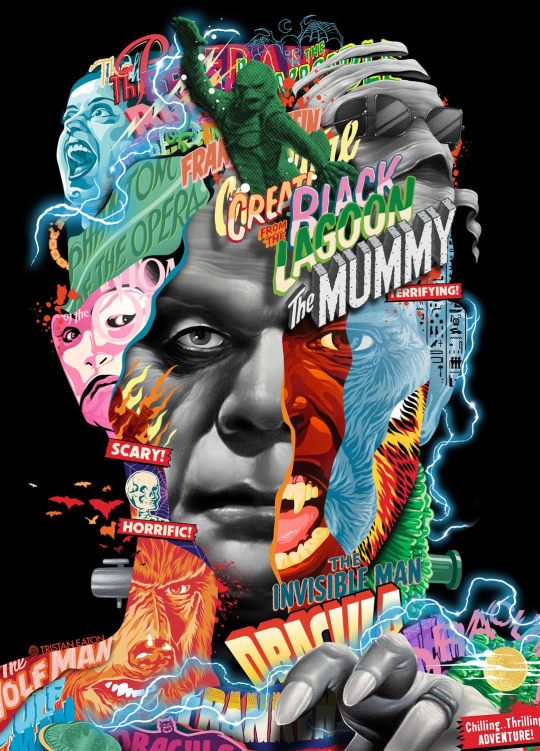
The Universal Classic Monsters Collection will be released on 4K Ultra HD (with Digital) in digibook packaging on October 3 via Universal. Designed by Tristan Eaton, the eight-disc set is limited to 5,500.
It includes 1931's Dracula, 1931’s Frankenstein, 1932’s The Mummy, 1933’s The Invisible Man, 1935’s The Bride of Frankenstein, 1941’s The Wolf Man, 1943’s Phantom of the Opera, and 1954’s Creature from the Black Lagoon.
All eight films are presented in 4K with HDR10. The Spanish version of Dracula is also included. Special features are listed below, where you can also see more of the packaging.
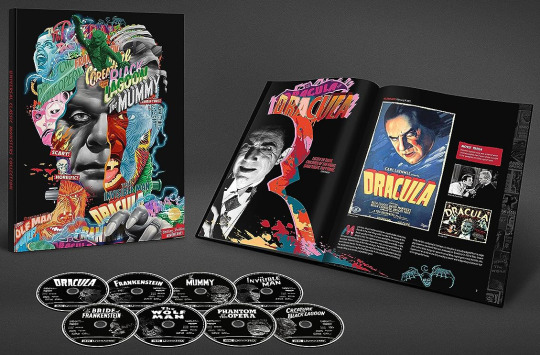
Dracula is directed by Tod Browning (Freaks) and written by Garrett Fort (Frankenstein), based on Bram Stoker’s 1897 novel. Bela Lugosi, David Manners, Helen Chandler, Dwight Frye, and Edward Van Sloan star.
Dracula special features:
Alternate score version by Philip Glass
Dracula (1931) Spanish version directed by George Melford
The Road to Dracula
Lugosi: The Dark Prince
Dracula: The Restoration
Dracula Archives
Monster Tracks
Trailer gallery
Transylvanian vampire Count Dracula bends a naive real estate agent to his will, then takes up residence at a London estate where he sleeps in his coffin by day and searches for potential victims by night.
Frankenstein is directed by James Whale (The Indivisible Man) and written by Garrett Fort (Dracula) and Francis Edward Faragoh (Little Caesar), based on Mary Shelley’s 1818 novel. Colin Clive, Mae Clarke, John Boles, and Boris Karloff star.
Frankenstein special features:
Audio commentary by film historian Rudy Behlmer
Audio commentary by historian Sir Christopher Frayling
The Frankenstein Files: How Hollywood Made A Monster
Karloff: The Gentle Monster
Universal Horror
Frankenstein Archives
Boo!: A Short Film
100 Years of Universal: Restoring the Classics
Monster Tracks
Trailer gallery
Dr. Frankenstein dares to tamper with life and death by creating a human monster out of lifeless body parts.
The Mummy is directed by Karl Freund (Dracula) and written by John L. Balderston (Dracula). Boris Karloff, Zita Johann, David Manners, Edward Van Sloan, and Arthur Byron star.
The Mummy special features:
Audio commentary by film historian Paul M. Jensen
Audio commentary by Rick Baker, Scott Essman, Steve Haberman, Bob Burns, and Brent Armstrong
Mummy Dearest: A Horror Tradition Unearthed
He Who Made Monsters: The Life and Art of Jack Pierce
Unraveling the Legacy of The Mummy
The Mummy Archives
100 Years of Universal: The Carl Laemmle Era
Trailer gallery
An Egyptian mummy searches Cairo for the girl he believes is his long-lost princess.
The Invisible Man is directed by James Whale (Frankenstein) and written by R.C. Sherriff (Goodbye, Mr. Chips), based on H.G. Wells’ 1897 novel. Gloria Stuart, Claude Rains, William Harrigan, Dudley Digges, and Una O'Connor star.
The Invisible Man special features:
Audio commentary by film historian Rudy Behlmer
Now You See Him: The Invisible Man Revealed
Production Photographs
100 Years of Universal: Unforgettable Characters
Trailer gallery
A scientist finds a way of becoming invisible, but in doing so, he becomes murderously insane.
The Bride of Frankenstein is directed by James Whale (Frankenstein) and written by William Hurlbut. Boris Karloff, Colin Clive, Valerie Hobson, and Elsa Lanchester star.
The Bride of Frankenstein special features:
Audio commentary by film historian Scott MacQueen
She’s Alive! Creating The Bride of Frankenstein
The Bride Of Frankenstein Archive
100 Years of Universal: Restoring the Classics
Trailer gallery
Dr. Frankenstein, goaded by an even madder scientist, builds his monster a mate.
The Wolf Man is directed by George Waggner (Operation Pacific) and written by Curt Siodmak (I Walked with a Zombie). Claude Rains, Warren William, Ralph Bellamy, Patric Knowles, Bela Lugosi, and Lon Chaney Jr. star.
The Wolf Man special features:
Audio commentary by film historian Tom Weaver
Monster by Moonlight
The Wolf Man: From Ancient Curse to Modern Myth
Pure in Heart: The Life and Legacy of Lon Chaney Jr.
He Who Made Monsters: The Life and Art of Jack Pierce
The Wolf Man Archives
100 Years of Universal: The Lot
Trailer gallery
Larry Talbot returns to his father's castle in Wales and meets a beautiful woman. One fateful night, Talbot escorts her to a local carnival where they meet a mysterious gypsy fortune teller.
Phantom of the Opera is directed by Arthur Lubin and written by Eric Taylor (The Ghost of Frankenstein) and Samuel Hoffenstein (Dr. Jekyll and Mr. Hyde). Claude Rains, Nelson Eddy, Susanna Foster, and Edgar Barrier star.
Phantom of the Opera special features:
Audio commentary by film historian Scott MacQueen
The Opera Ghost: A Phantom Unmasked
Production Photographs
100 Years of Universal: The Lot
Theatrical trailer
An acid-scarred composer rises from the Paris sewers to boost his favorite opera understudy’s career.
Creature from the Black Lagoon is directed by Jack Arnold (The Incredible Shrinking Man) and written by Harry Essex and Arthur A. Ross. Richard Carlson, Julia Adams, Richard Denning, Antonio Moreno, Nestor Paiva, and Whit Bissell star.
Creature from the Black Lagoon special features:
Audio commentary by film historian Tom Weaver
Back to the Black Lagoon
Production Photographs
100 Years of Universal: The Lot
Trailer gallery
A group of scientists try to capture a prehistoric creature luring in the depths of the Amazonian jungle and bring it back to civilization for study.
Pre-order Universal Classic Monsters Collection.
#universal monsters#dracula#frankenstein#the mummy#creature from the black lagoon#the wolf man#bride of frankenstein#phantom of the opera#the invisible man#horror#classic horror#dvd#gift#the bride of frankenstein#tristan eaton#wolf man
101 notes
·
View notes
Text

I’m sorry Jill Armitage but I disagree.
I don’t think Elizabeth was envious that Mary had a son.
Elizabeth fought AGAINST marriage over and over. Because she wished to rule her country herself. She would not let anyone else do it.
And let’s be perfectly honest, if she truly wished to marry Robert Dudley, she would have. Her father married her mother against the wishes or some of his advisers. Mary, her sister married Philip against her advisers advice.
Elizabeth could have done the same.
She didn’t.
Perhaps because she didn’t wish to be married.
9 notes
·
View notes
Note
was edward bipolar??
I am not a psychiatrist and thus not qualified to diagnose people, but my laywoman's opinion is probably.
He definitely suffered from depression and suicidal thoughts, particularly in his younger years.
He wrote about these feelings at length in his diary and in letters to his girlfriend Freda Dudley Ward and equerry Godfrey Thomas. Just to give a small sampling...
In early 1917 he wrote in his diary:
"I feel quite ready to commit suicide and would if I didn't think it unfair on Papa." (Source: King Edward VIII by Philip Ziegler p. 66)
In May of 1919 he wrote to Freda:
"I just can't cheer up somehow darling, everything & still more the future does look so hopelessly black & I'm so hopelessly despondent about it all..." (Source: Letters from a Prince by Rupert Godfrey p. 147)
According to Dickie Mountbatten, on a long journey by shit to Australia David would "shut himself in his cabin for days, alone, face drawn, eyes brooding." (Source: King Edward VIII by Philip Ziegler p, 143)
You have to read between the lines more to deduce if he experienced periods of mania because he wasn't venting to people about that as he did with his depression, but there are definitely accounts suggesting manic behavior. During certain time periods he seemed to have an excessive amount of energy, including during his 1924 tour of the United States where he had an extremely packed schedule of engagements but still made time to stay up dancing and partying every night. There's also plenty of evidence he was prone to acting impulsively, and that he would start various projects with great enthusiasm only to later abandon them.
And while I don't think this speaks to any particular diagnosis it's also worth mentioning that most of the courtiers surrounding him during the abdication crisis believed he was "mad." Clive Wigram, a private secretary, said: "I did not think the King was normal, and this view was shared by my colleagues at Buckingham Palace. He might any day develop into a George III, and it was imperative to pass the Regency Bill as soon as possible, so that if necessary he could be certified." (Source: King Edward VIII by Philip Ziegler p. 239) Most of the other statements I've read from courtiers were equally vague as to what specifically convinced them, so it's hard to say to what extent it was due to David's genuine mental illness and to what extent it was just that they seemed to believe no sane man would want to marry Wallis Simpson.
Thanks for asking!
#edward viii#duke of windsor#apologies for the delayed response; I've been distracted by recent events....#q&a
5 notes
·
View notes
Text
Who is most important to the history of Doctor Who?
With 61 years under its belt, Doctor Who has changed a lot since it began all those years ago. Its continued survival has relied on that change and the countless people who made it happen. Trying to single out any one person as the most important to the history of the show would be near impossible, but hell if we aren't going to try.
bar a few of the most recognisable names, contestants for this tournament were decided by nomination only, so there are inevitably people missing who's contributions were just as valuable, please don't take anyone's absence as a slight against them or their work
the submission form for propaganda is still open
SEMIFINALS
Verity Lambert vs All the thousands of people who've worked behind the scenes
Sydney Newman vs Terry Nation
QUARTERFINALS

Verity Lambert vs Roger Delgado
Russell T Davies vs All the thousands of people who've worked behind the scenes
William Hartnell vs Sydney Newman
Terry Nation vs Murray Gold
previous rounds under the cut
ROUND 4

Verity Lambert vs Delia Derbyshire
June Hudson vs Roger Delgado
Russell T Davies vs Nicholas Courtney
David Whitaker vs All the thousands of people who've worked behind the scenes
William Hartnell vs Waris Hussein
Liz Sladen vs Sydney Newman
Terry Nation vs Christopher Eccleston
Jodie Whittaker vs Murray Gold
ROUND 3

Verity Lambert vs The BBC Radiophonic Workshop
Delia Derbyshire vs Gary Russell
Robert Shearman vs June Hudson
David Tennant vs Roger Delgado
Russell T Davies vs David Graham & Peter Hawkins
Nicholas Courtney vs Rona Munro
Paul McGann vs David Whitaker
Terrance Dicks vs All the theousands of people who've worked behind the scenes
William Hartnell vs Julie Gardner
Tom Baker vs Waris Hussein
Liz Sladen vs Nicholas Briggs
Billie Piper vs Sydney Newman
Terry Nation vs Alice Troughton
Ron Grainer vs Christopher Eccleston
Jodie Whitteker vs Kate Orman
Murray Gold vs Dudley Simpson
ROUND 2

DAY 2
William Hartnell vs Philip Hinchcliffe
Julie Gardner vs Ncuti Gatwa
Tom Baker vs Jacqueline Hill
Craig Ferguson vs Waris Hussein
Liz Sladen vs Colin Baker
Douglas Adams vs Nicholas Briggs
Sophie Aldred vs Billie Piper
Peter Davison vs Sydney Newman
Terry Nation vs Steven Moffat
Alice Troughton vs Marc Platt
Patrick Troughton vs Ron Grainer
Jonathan Blum vs Christopher Eccleston
Jodie Whittaker vs Lisa Bowerman
Anthony Coburn vs Kate Orman
Murray Gold vs Rachel Talalay
Dudley Simpson vs Sue from Catering
DAY 1
Verity Lambert vs Segun Akinola
Graeme Harper vs The BBC Radiophonic Workshop
Delia Derbyshire vs Robert Holmes
Gary Russell vs The Audience
Robert Shearman vs Peter Cregeen
June Hudson vs Raymond Cusick
David Tennant vs Sylvester McCoy
Kit Pedler vs Roger Delgado
Russell T Davies vs Barry Letts
David Graham & Peter Hawkins vs John F Kennedy
Paul Cornell vs Nicholas Courtney
Rona Munro vs the anonymous creator of TARDIS wiki
Paul McGann vs William Shakespeare
David Whitaker vs Lawrence Miles
Peter Capaldi vs Terrance Dicks
Justin Richards vs All the thousands of people who’ve worked behind the scenes
ROUND 1 (group stage)
Group 1
Carole Ann Ford
Jacqueline Hill
William Hartnell
William Russell
David Graham and Peter Hawkins
Group 2
Patrick Troughton
Frazer Hines
Nicholas Courtney
Jon Pertwee
Roger Delgado
Group 3
Liz Sladen
Pat Gorman
Stuart Fell
Tom Baker
Peter Davison
Colin Baker
Group 4
Sylvester McCoy
Sophie Aldred
Paul McGann
Lisa Bowerman
India Fisher
Sean Carlsen
Group 5
Christopher Eccleston
Billie Piper
David Tennant
Freema Agyeman
John Simm
Group 6
Matt Smith
Peter Capaldi
Jodie Whittaker
Ncuti Gatwa
Group 7
Michael Grade
Peter Cregeen
Sydney Newman
Gary Russell
Nicholas Briggs
Donald Wilson
Group 8
all the thousands of people who’ve worked behind the scenes
June Hudson
Peter Brachacki
Raymond Cusick
Group 9
John F Kennedy
Sue from Catering
the real people who have been portrayed in the show
William Russell
Group 10
Marnal Gate
Person who created TARDIS wiki
Craig Ferguson
The Audience
Group 11
BBC Radiophonic Workshop
Delia Derbyshire
Ron Grainer
Dudley Simpson
Paddy Kingsland
Peter Howell
Robert Harvey
Segun Akinola
Murray Gold
Group 12
Graeme Harper
Paddy Russell
Rachel Talalay
Waris Hussein
Christopher Barry
Richard Martin
Alice Troughton
Group 13
Barry Letts
Graham Williams
John Nathan Turner
Philip Hinchcliffe
Verity Lambert
Julie Gardner
Group 14
Alan Moore
Grant Morrison
Marc Platt
Paul Cornell
Kate Orman
Group 15
Justin Richards
Dave Stone
Lawrence Miles
Lance Parkin
Jonathan Blum
Robert Shearman
Group 16
David Whitaker
Terry Nation
Anthony Coburn
John Lucarotti
Gerry Davis
Kit Pedler
Terrance Dicks
Group 17
Robert Holmes
Douglas Adams
Eric Saward
Andrew Cartmel
Rona Munro
Russell T Davies
Steven Moffat
Chris Chibnall
links to previous tournaments
52 notes
·
View notes